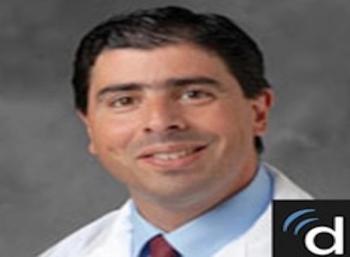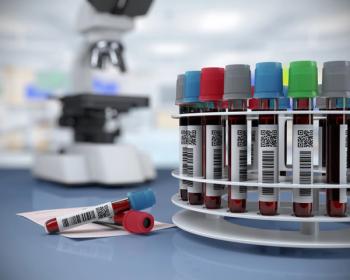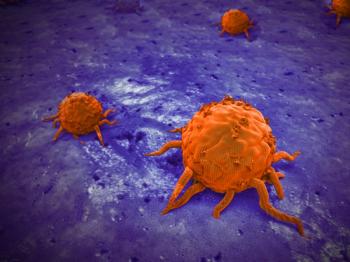
Precision Medicine in Oncology
Latest News
Latest Videos

CME Content
More News

A recent analysis illustrated how a combination of different genomic approaches discovered actionable alterations in 44% of patients with metastatic breast cancer.

The researchers, from a medical genetics firm, said the findings illustrate the usefulness of germline analysis for the right patient.

Blythe Adamson, PhD, MPH, of Flatiron Health, discusses study results she presented at the annual American Society of Clinical Oncology meeting on the use of immune checkpoint inhibitors in end-of-life care

Next-generation sequencing (NGS) of cell-free DNA (cfDNA) may improve diagnostic testing in advanced lung cancer.

Andre Goy, MD, of John Theurer Cancer Center, discussed what we’ve learned from existing chimeric antigen receptor T (CAR T)-cell therapies in managing cytokine responses.

The opportunity that precision medicine presents in the field of oncology will be further discussed during this year’s Patient-Centered Oncology Care® 2020 virtual meeting.

Having biomarker-driven solutions in prostate cancer is important, because they have been lacking.

A new analysis of ADAURA data shows osimertinib cuts the risk of brain metastases or death by 82% compared with placebo in certain early-stage patients with NSCLC.

If approved, FoundationOne's CDx would be used to identify patients with non–small cell lung cancer (NSCLC) who are eligible for mobocertinib or brigatinib.

The research spotlights the diverse landscape of pediatric cancer types harboring 2 types of genomic alterations.

Pralsetinib (Gavreto), developed by Blueprint Medicines, received accelerated approval. Thermo Fisher Scientific's Oncomine Dx Target Test received premarket approval as a companion diagnostic to identify patients who are candidates for the once-daily oral RET-targeted therapy.

AstraZeneca's phase 3 trial of a coronavirus disease 2019 (COVID-19) vaccine has been temporarily stopped; the Sturgis Motorcycle Rally may have led to over 250,000 COVID-19 cases; a potential treatment for breast cancer may not be effective.

New findings indicate that relying on circulating tumor DNA (ctDNA) and tissue DNA tests are complementary measures that can better match patients with biliary tract cancer with precise therapies.

Combining chimeric antigen receptor (CAR) T-cell therapy and an oncolytic virus were more potent against solid tumors than CAR T-cell therapy alone in mouse models of cancer.

Liquid CDX, a blood test, analyzes more than 300 genes and genomic signatures across all solid tumors.

From the Editor-in-Chief, Evidence-Based Oncology, August 2020.

An agreement will tap Caris Life Sciences' next-generation sequencing technology to identify patients for Merus’ phase 1/2 eNRGy trial.

Oncology drug costs affect those entering into risk-based arrangements, and these groups must rethink their approach to evaluating risk.

Better technology is rekindling the promise of DNA medicines in oncology, including the treatment of glioblastoma.

It is the first such approval for a diagnostic that combines next-generation sequencing and liquid biopsy in one test.

clonoSEQ, from Adaptive Biotechnologies, can detect 1 cancer cell among a million healthy cells.

Results from a phase 2 trial of pembrolizumab as immune checkpoint inhibition against 5 types of solid tumors show that circulating tumor DNA (ctDNA) may be used to accurately predict response to treatment.

The study, using mice, also found that the 2-step therapy was more effective the earlier it was given.

The ADAURA trial was stopped in April 2020 after an independent monitoring committee called for the trial to be unblinded 2 years early based on a determination of overwhelming efficacy.

Using a computational algorithm, researchers at Children's Hospital of Philadelphia analyzed noncoding genetic mutations to discover how they factor into 5 pediatric cancers.












